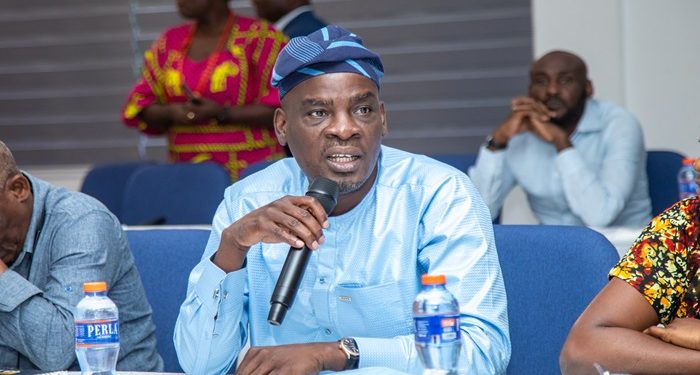Accra, July 7, GNA – The Government is up to date with releases to the District Assemblies’ Common Fund (DACF) and has made concrete arrangements to settle arrears accumulated during the previous administration of the National Democratic Congress (NDC).
Government released 186.391 billion cedis for the first quarter of 2004 while that for the second quarter was due for payment in July, Mr Joshua Magnus Nicol, Administrator of DACF, told the Ghana News Agency in an interview on Wednesday.
He said the Government with the approval of Parliament had phased out the payment of the outstanding arrears of 269.7 billion cedis accumulated by the previous administration over a five-year period and paid 53.9 billion cedis of the amount in December 2003, adding that the next payment was due in December 2004.
Mr Nicol said Accra Metropolitan Assembly received a gross amount of 2.2 billion cedis for the first quarter; Kumasi Metropolitan Assembly, 2.1 billion cedis; Shama-Ahanta Metropolitan Assembly 1.2 billion cedis and Tamale Metropolitan Assembly 1.3 billion cedis. Bolgatanga Municipal Assembly got 1.2 billion cedis; Wa Municipal Assembly, 1.2 billion cedis; Sunyani Municipal Assembly 1.1 billion cedis; Ho Municipal Assembly, 1.0 billion cedis; Koforidua Municipal Assembly 1.2 billion cedis; Bawku Municipal Assembly 1.5 billion cedis and Techiman Municipal Assembly 1.1 billion cedis.
Akwapim North District Assembly received 937 million cedis, Dangbe West District Assembly, 958 million cedis and Bongo District Assembly, 1.5 billion cedis.
Mr Nicol explained that the net amounts received by the Assemblies were lesser because the cost of plant and equipment supplied to them were deducted at source.
He said 60 per cent of the Fund was distributed on the basis of equality. This meant that every Assembly got a bulk sum to enable it to carry out its programmes.
He said 35 per cent was based on the need factor in the fields of Education, Health, Water and Roads; three per cent went on service pressure and two per cent on the responsive factor, being the ability to generate local revenue.
Mr Nicol explained that under the responsive factor, revenue generated was worked out based on the previous year’s receipts in percentage terms rather than the quantum so that all the assemblies had equal chances.
He said the urban areas tended to gain more under the pressure factor because of their larger populations adding: “Many more people use facilities in Accra than those in the Sene District, for example, so you would expect that facilities in Accra would deteriorate faster than those in Sene.”
Source: GhanaWeb










